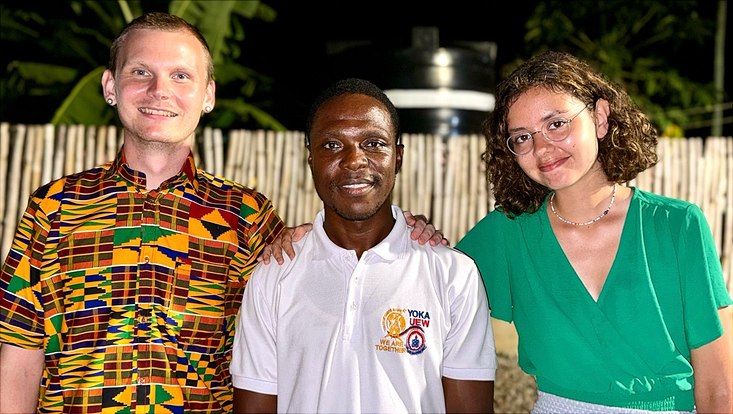Federal government supports learning opportunities offered by the University for children and adolescentsUniversität Hamburg School Labs Receive €93,000
18 February 2022, by Ingeborg Adler
Two school labs at Universität Hamburg have been granted funding by the Federal Ministry of Education and Research (BMBF): The physics school lab Light & Schools has been granted €50,000, while the chemistry school lab Molecules & School will receive €43,000.
It is estimated that approximately 20 percent of children and young people need additional support as a result of the COVID-19 pandemic. This is why the German federal government has initiated a catch-up program targeting these groups (Aufholen nach Corona für Kinder und Jugendliche). The catch-up program is aimed at school students who fell behind as a result of the pandemic, and features comprehensive measures to provide ongoing support for young people. Two Universität Hamburg school labs have been granted funding.
“With this funding, we can set up an afternoon program offering many different experiments conducted with one supervisor to four students” celebrated Bastian Besner, who coordinates Light & Schools together with Dr. Monika Kobylinski and Dr. Jonas Siegl. The new project developed for this purpose, Physik zum Mitmachen (join in on physics) is aimed at school students in eighth grade or above, who lost their motivation to get involved in physics and physics-related subjects during homeschooling, or who were unable to carry out physics experiments due to a lack of technical equipment in their homes.
A major part of the project is the school lab’s Science Escape Game. This provides students with glimpses into the research conducted by Centre for Ultrafast Imaging: Cluster of Excellence Advanced Imaging, which finances the school lab. The Cluster of Excellence spokesperson, Prof. Klaus Sengstock founded Light & School 10 years ago. Today, he is more convinced than ever of the importance of showing children and adolescents how fascinating the work in the laboratory is. Now, his work is aimed at helping them to catch up.
The MINtensive courses offered by the Molcules & Schools chemistry school lab, which has also been granted funding, are aimed at public school students from grades 9 through 11. Over the course of a year, they can take part in holiday courses or afternoon courses in the chemistry lab, for example in creating ancient perfumes, or analyze foodstuffs or genetic markers. “These grades are special, as it is during this time that students make a decision about their upper secondary courses,” explains Dr. Skadi Kull, the coordinator. “This is how the MINtensive program can have a positive influence on the decision-making process for students who have not yet made up their minds for a scientific course.” At the very least, their scientific work in the school lab can help them rediscover their interest in STEM subjects.
The application for funding for the school labs was part of the call for applications for the catch-up program Aufholen nach Corona für Kinder and Jugendliche offered by the Lernort Labor—Bundesverband der Schülerlabore (federal association of school laboratories learning laboratory program) in conjunction with the Julius Maximilian University of Würzburg.





